(April 2020) Like millions of other people around the world, we're currently confined to our homes, forbidden from venturing out unless the purpose is to get food or medicine. We don't know how long this will last, and any travel plans we had have been shelved. (Incidentally, those travel plans included cherry blossom viewing in Japan followed by a road trip to Namibia. We've postponed the Japan trip until late October, hoping to replace cherry blossoms with autumn foliage. Namibia is still unknown.)
When I started this website, it was soon after we'd travelled to New Zealand in late 2018. Naturally, that was the first thing I wrote about, but we did have a life and many other great adventures before then. These days my adventures consist mostly of trips to the fridge, so I thought it might be fun to revisit some of the past adventures, starting with a short trip we made to Greece in August 2016.
A bit of background: my father was of Greek descent, and his mother, sister, and one brother live in Greece. When my father passed away in 2015, my mother felt it was a good time to visit her mother-in-law in Rodos (Rhodes) and she invited Sven and me to join her. We'd spend a few days together in Rodos, after which Sven and I would spend a couple of nights in Athens before returning home.
My mom, Sven and I arrived in Rodos on the same flight, and we promptly picked up our rental car - an entry-level Seat Ibiza that was quite kak. It felt like there was an entire gear missing, as you'd be revving along merrily in 2nd and switch to 3rd, only to feel like you'd accidentally switched to 5th instead. Nevertheless, it did the job and got us around the island well enough.
The next day, I was keen to explore the area near my grandmother's house as my father had taken a stunning photo years before of an abandoned, crumbling old house, which he had printed on canvas and hung on my folks' kitchen wall for years. This was the photo.
We found the house. The years have not been kind, as it seems to have lost more walls in the 10 years between photos. Nevertheless, the local cats still find it an enjoyable spot to hang out.
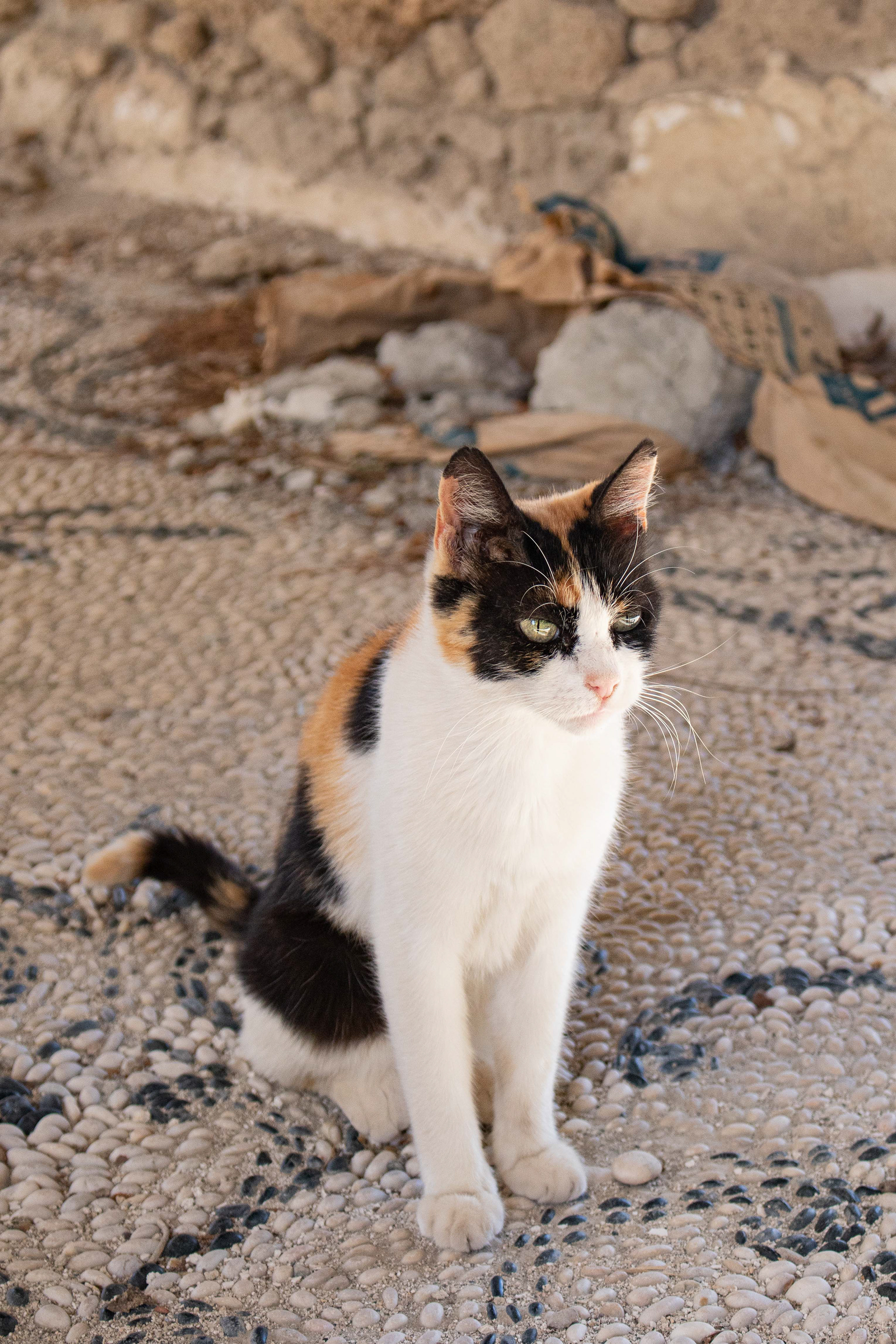
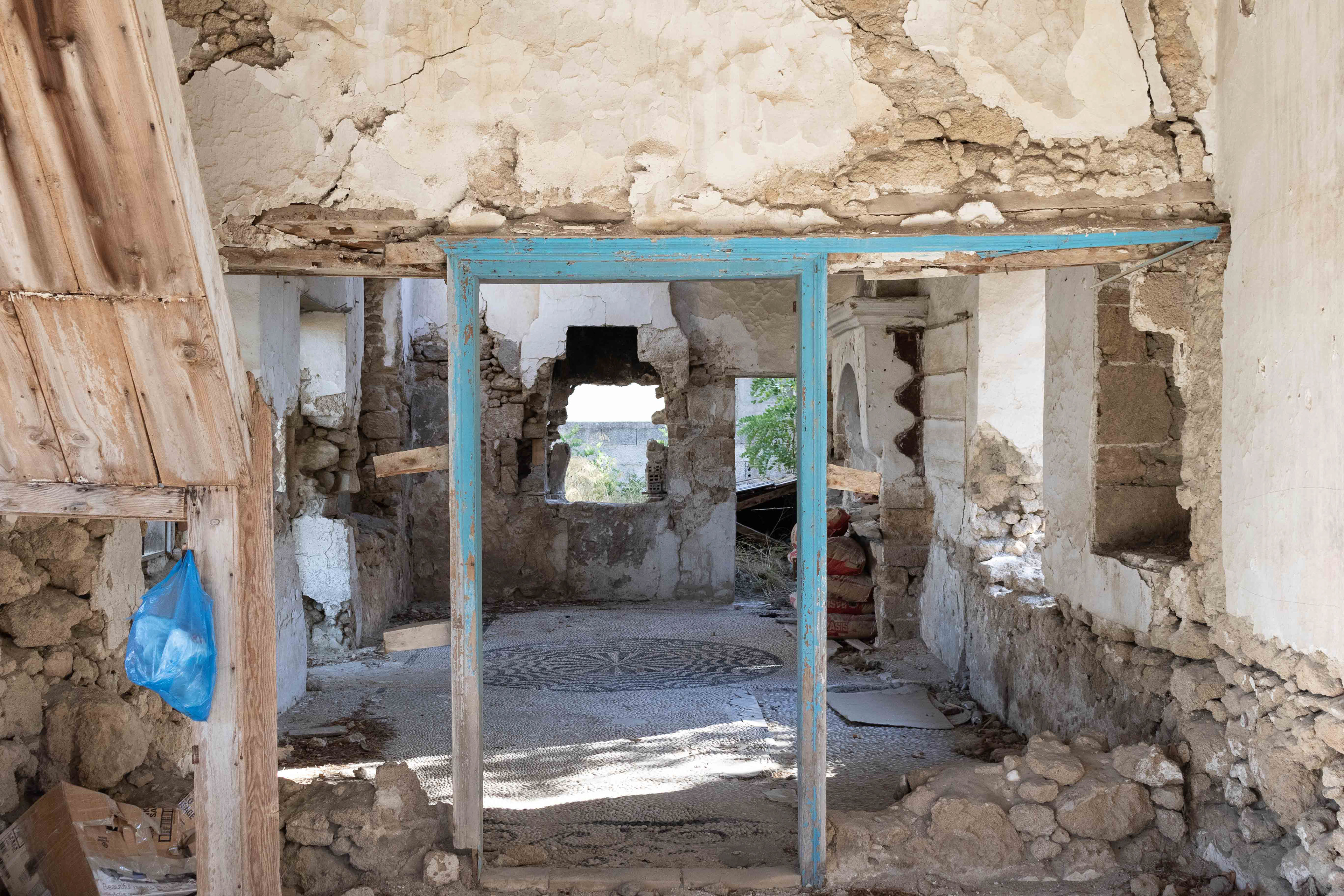
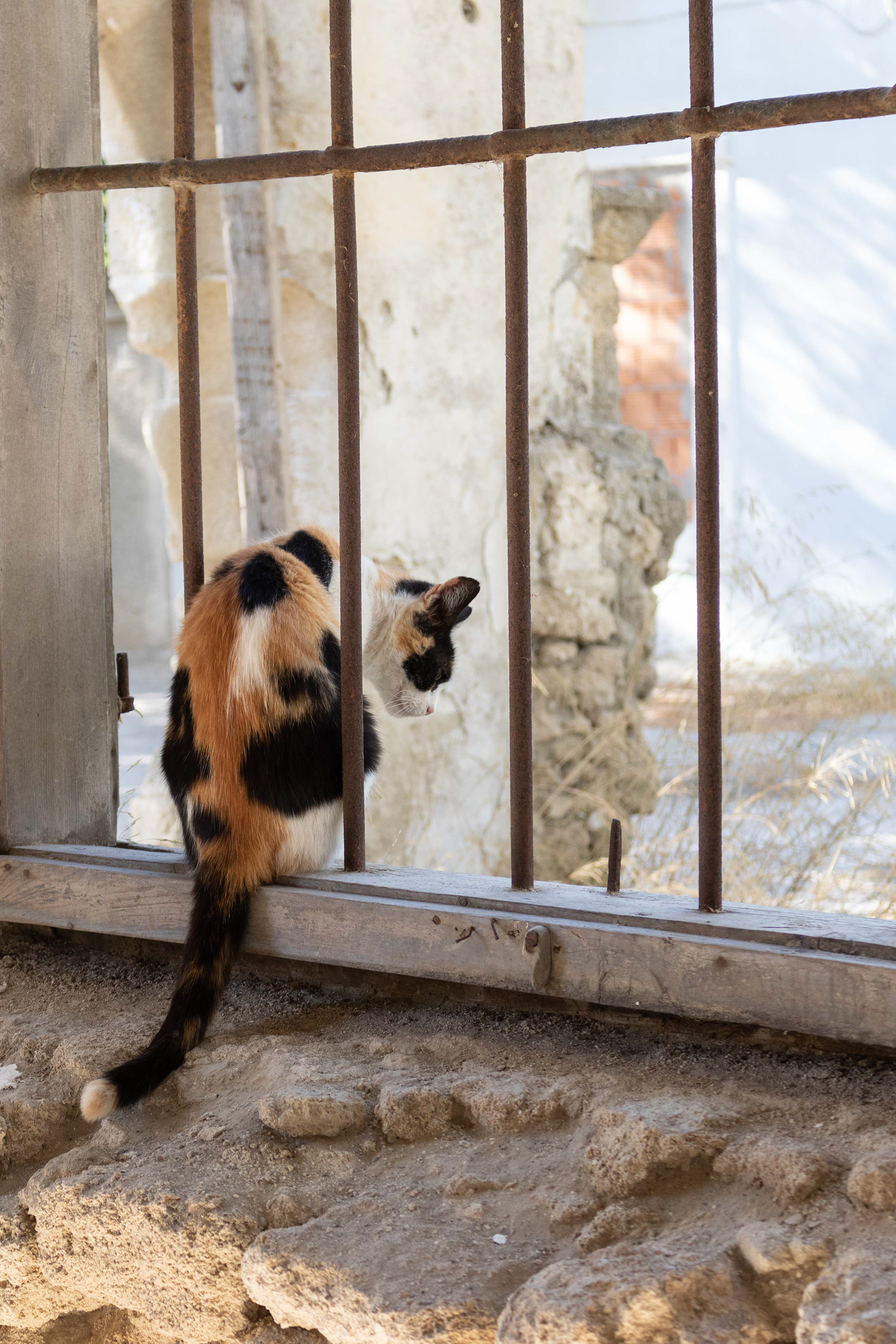
A day in Greece would not be complete without having drinks by the ocean and buying a pair of fake Ray-Bans for 5 euros.
The next day, Sven and I made a trip into town - Rodos Old Town, to be precise. The old town is a walled medieval town that bustles with shops and restaurants that are unfortunately designed to rip off tourists. Nonetheless, it's still a charming place and nice to walk around. This place has a lot of history, including the fact that it was home to one of the ancient wonders of the world, the Colossus of Rodos, and the Knights Hospitallers in the 14th to 16th centuries. That's a lot to soak up. When our feet got tired, we stopped and enjoyed the first of what would become a firm favourite on this trip: a refreshing café frappé.
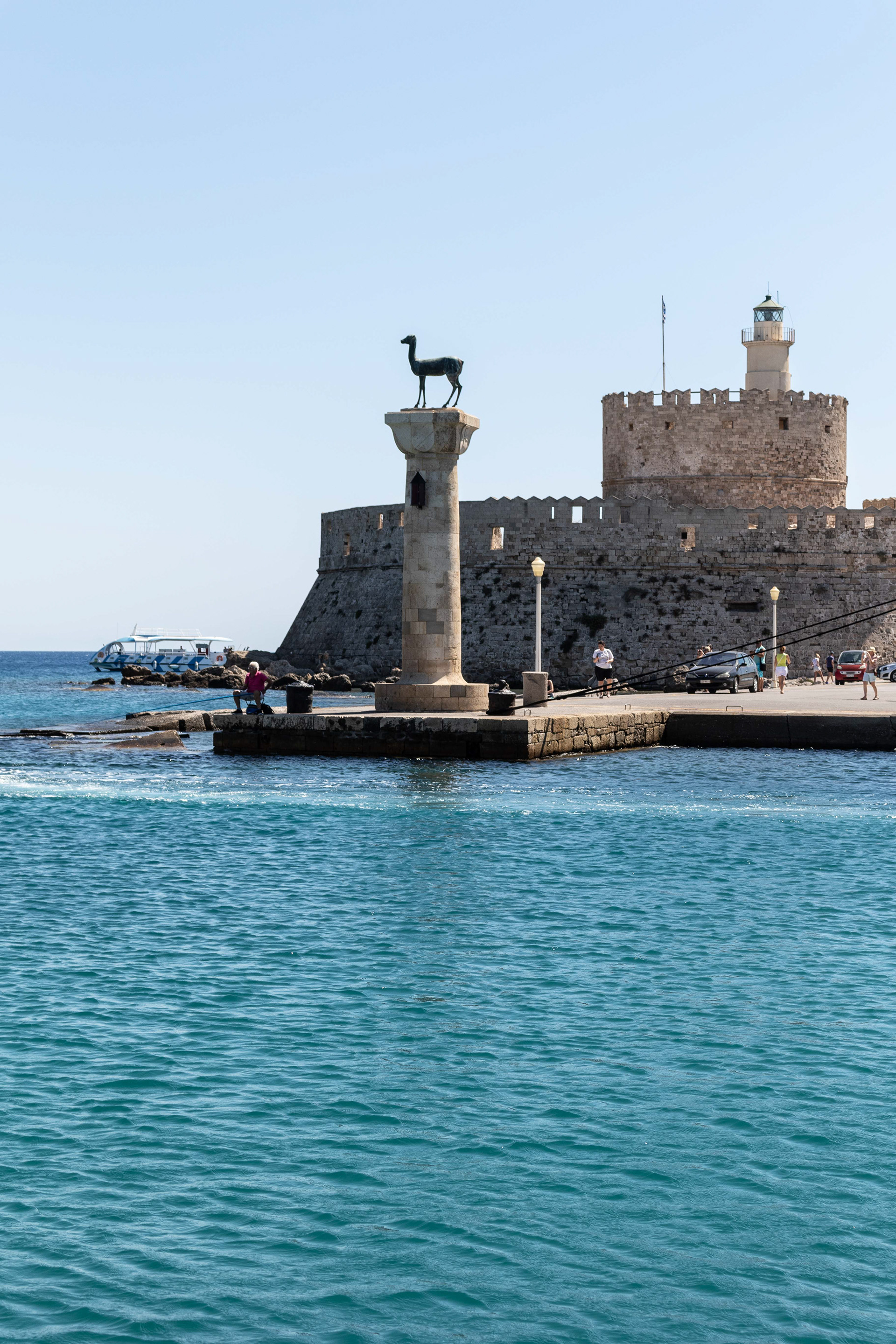
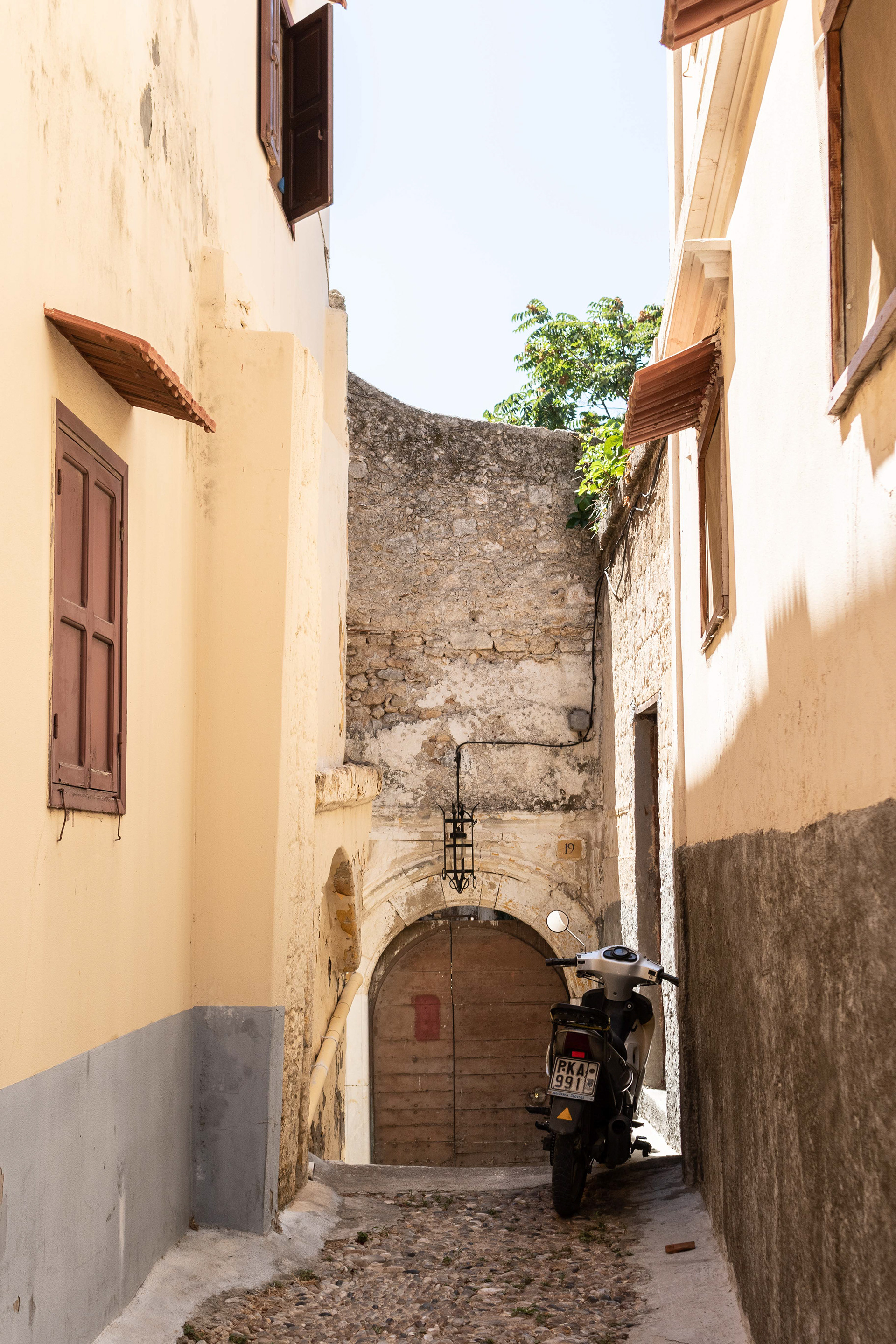
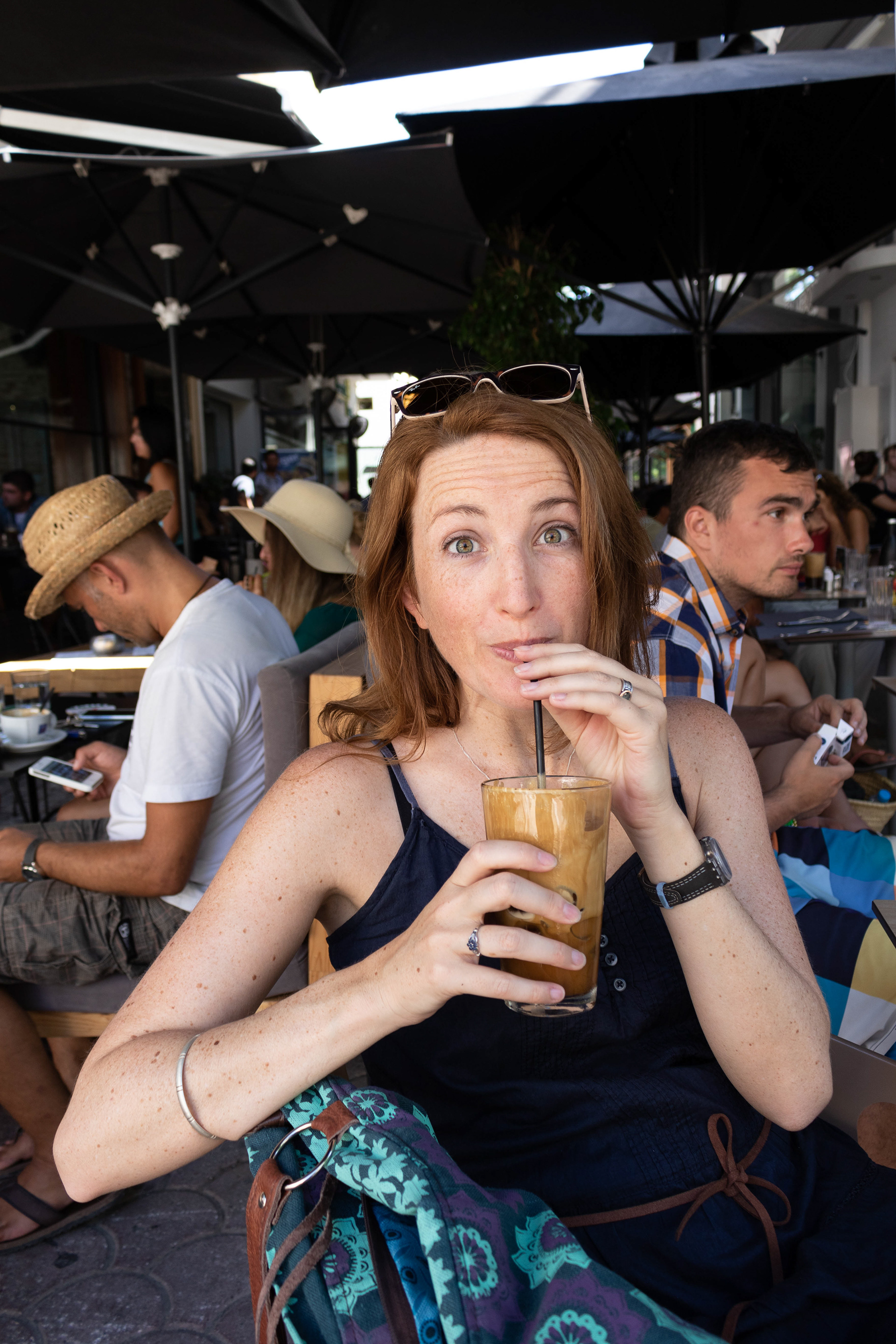
Over the next couple of days, Sven and I made use of the not-so-great car and visited a few sites around the island. We came across a ruin of a castle on a hill, which despite being a fairly obvious tourist attraction, had absolutely no information (not even a single sign) to indicate what it was and when it was originally built. Google later told me that this was Kritinia castle (Kastellos), built in the 15th century. Great views.
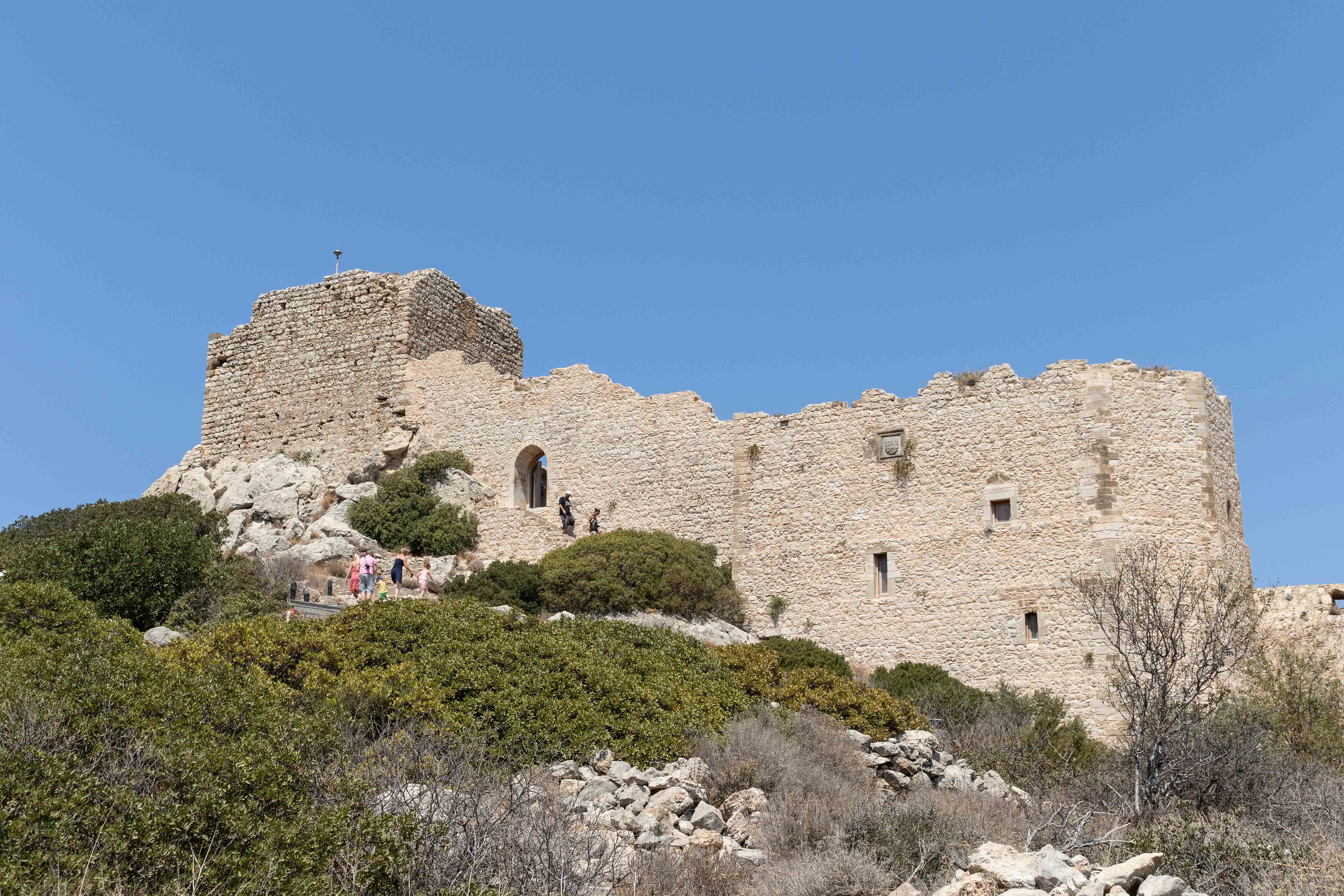
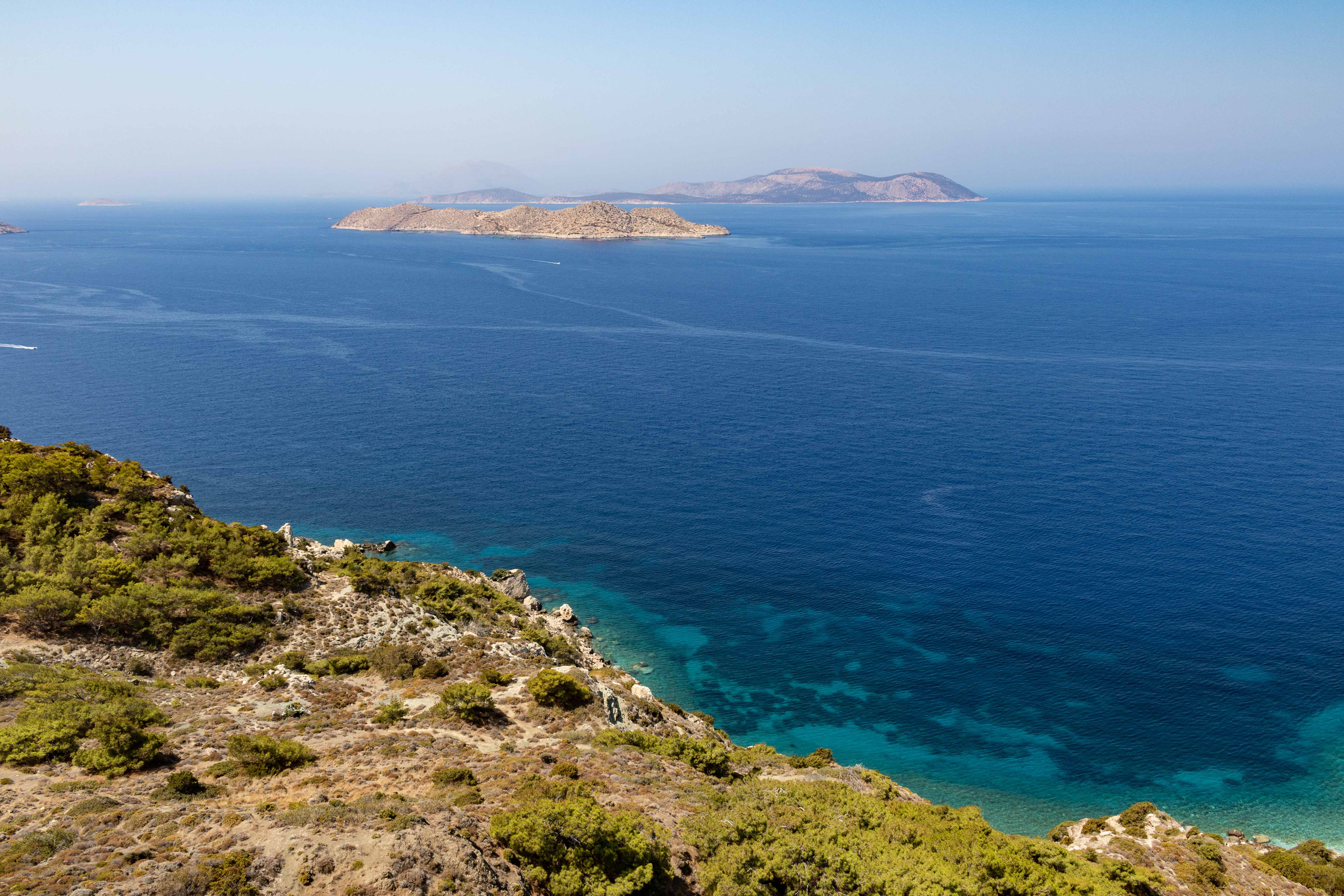
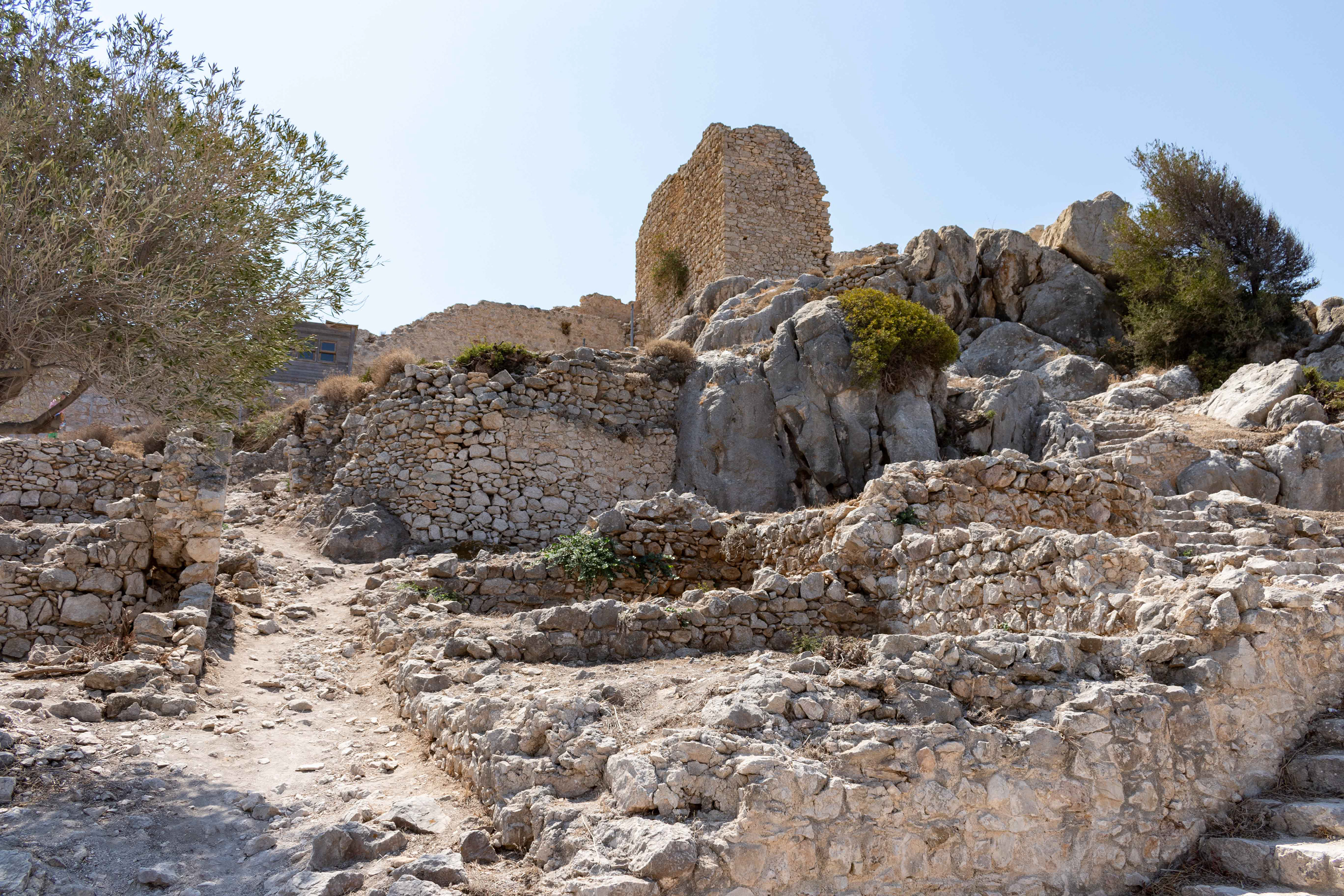
We also visited the better-advertised Monolithos castle, and found ourselves enveloped in a cloud of mist, which although detracted a little from the view, also wrapped the place in a little bit of magic. Over the years, visitors have created piles of small rocks all around the ruins, which simply add to its magic.
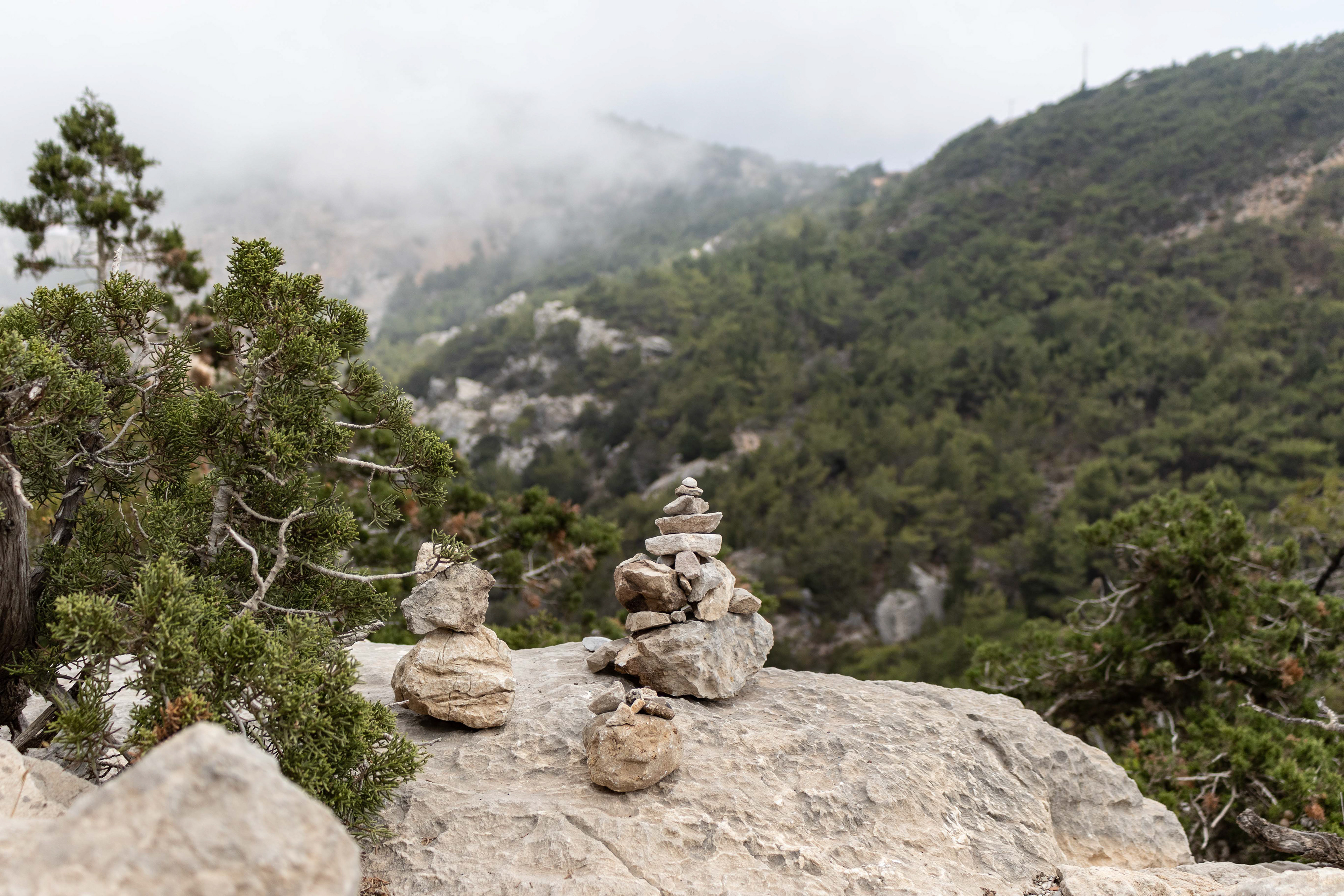
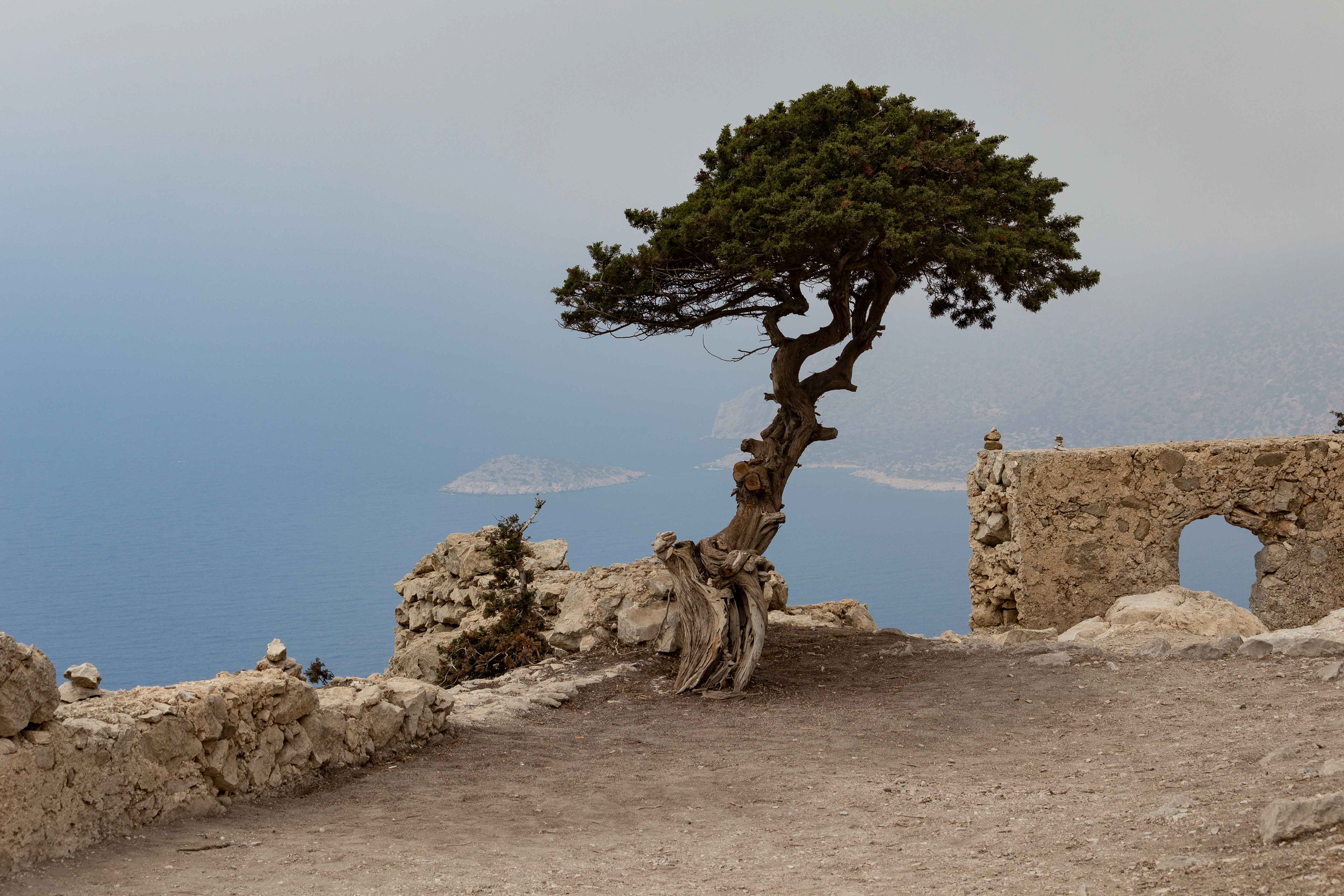
A surprising attraction on the island is a place that calls itself 'Butterfly Valley'. It doesn't technically have many butterflies, but it does have thousands of moths. I guess 'Moth Valley' doesn't sound that appealing, even though these are very pretty moths. I later found out that they're called Jersey Tigers. A very pleasant, shady walkway through valley gives you a perfect view of these winged creatures covering the rocks and trees everywhere.
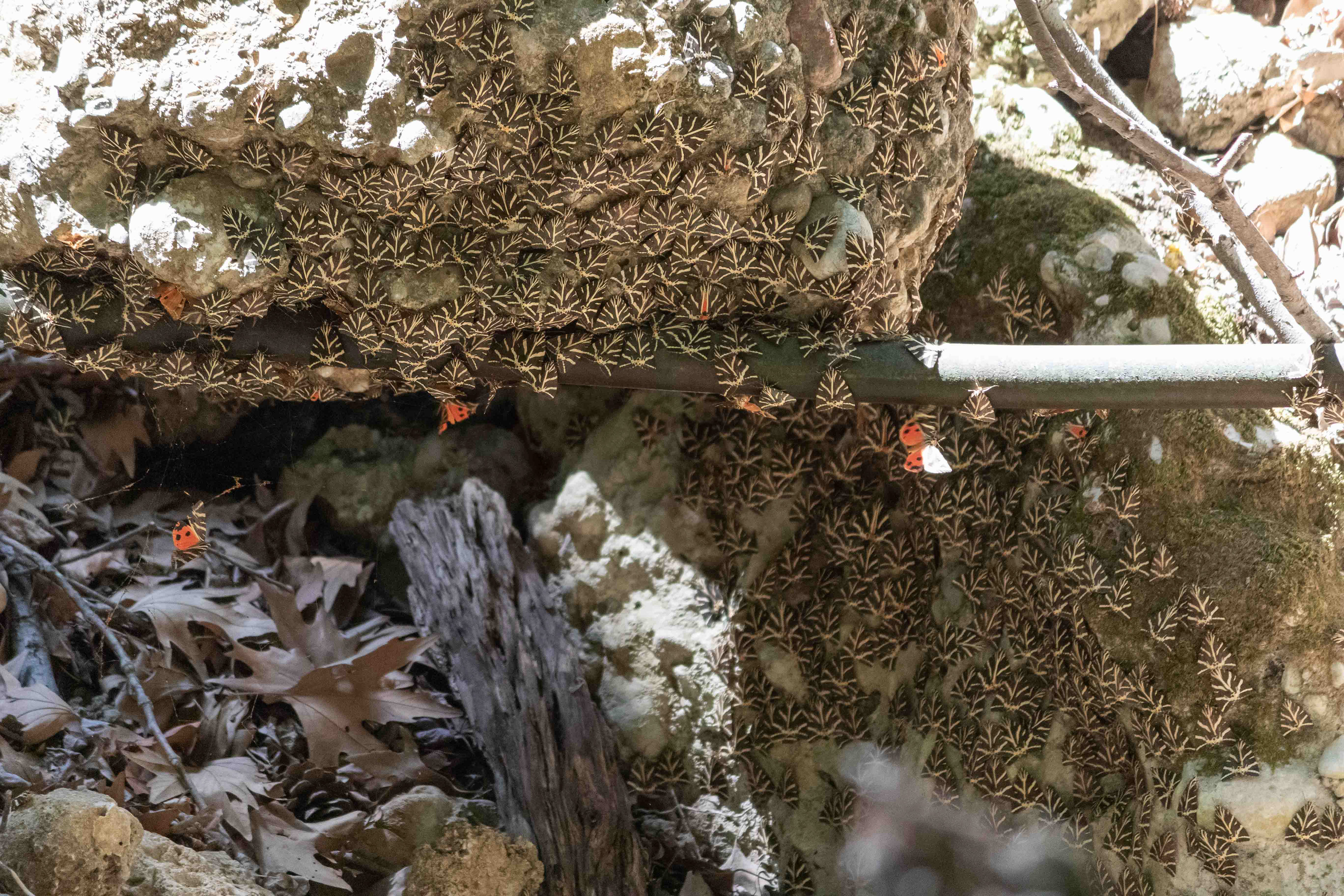
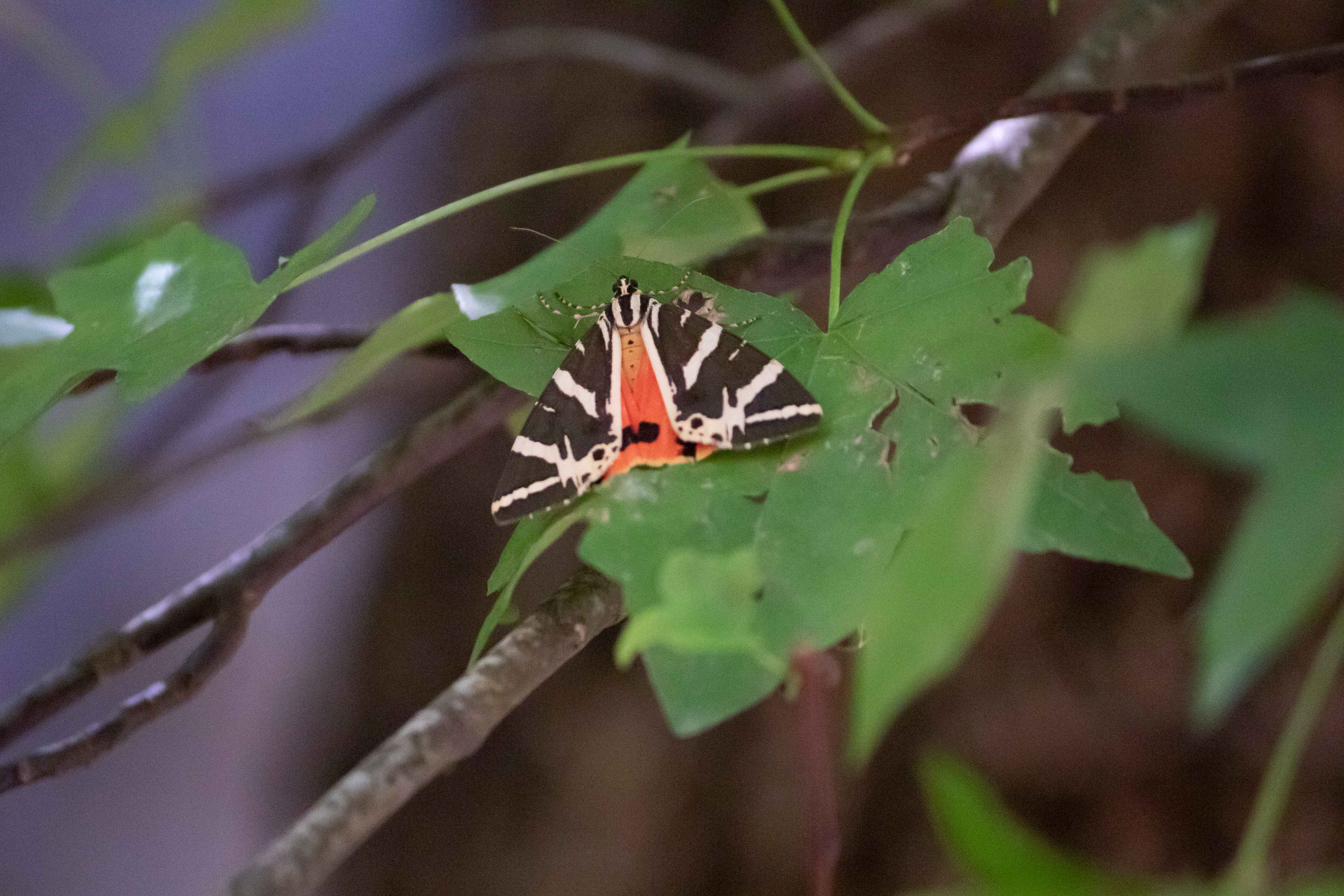
Another well-known spot on the island is the beach at Anthony Quinn Bay, named after the actor of Zorba the Greek fame. He apparently owned part of this bay, hence the name. First, we had to find it. There were, again, no signs to assist us. We drove back and forth along the road multiple times until eventually we went down a road that looked somewhat promising. Unsurprisingly, the place was packed and even though it was pretty, we weren't enchanted enough to stay longer than about an hour. Enough time to have a dip in the sea and cross it off our list of things to see. My mom had such fond memories of this beach from trips she'd taken with my dad many years earlier, but perhaps it was less crowded then and still retained some original charm. Even she said that the memory was certainly better than our visit that day.
A place that did impress us was Kalithea, a kind of resort surrounding a pretty bay with lovely views. My cousin suggested that we pay it a visit, which always goes to show that when you want to visit the best spots, ask a local.
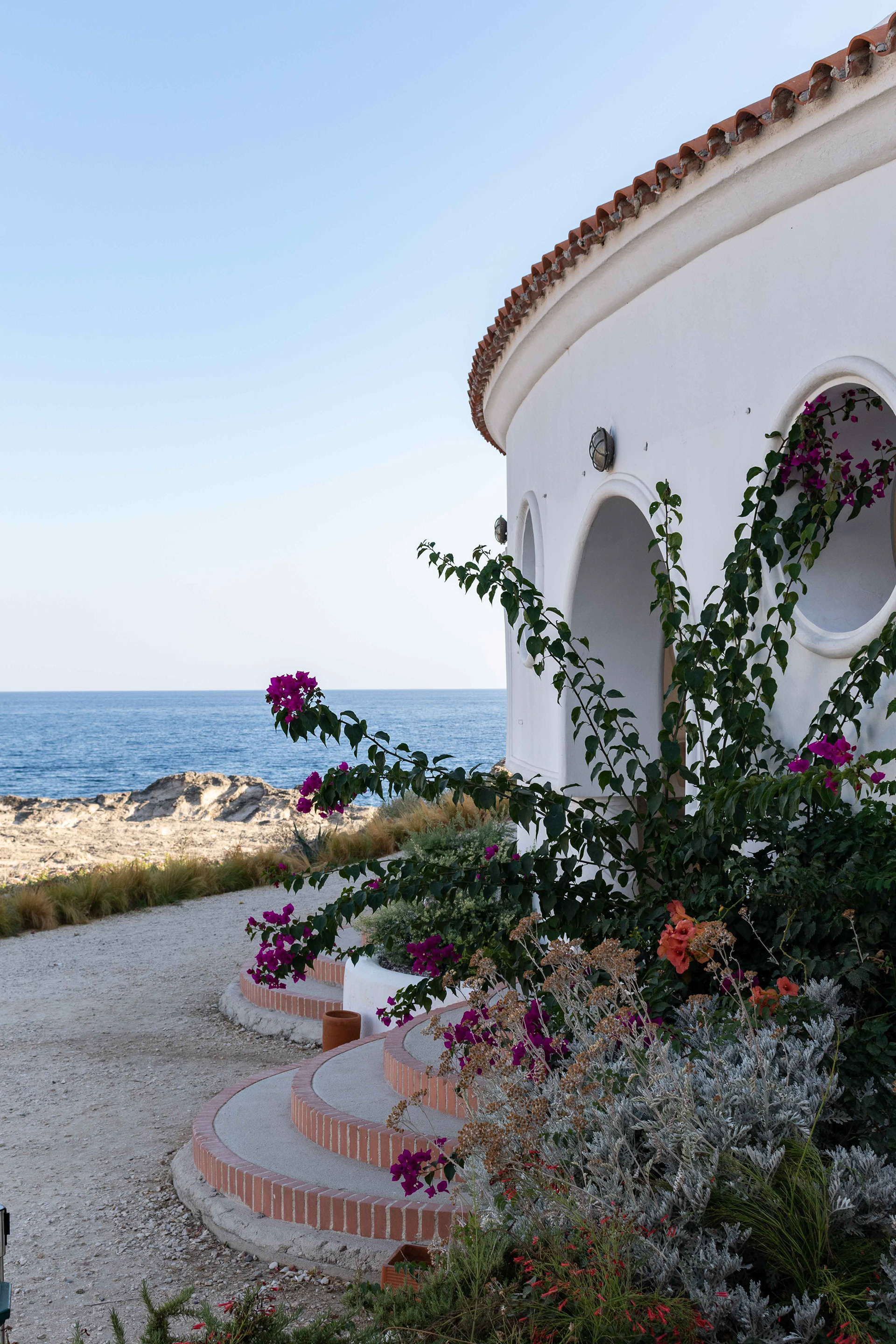
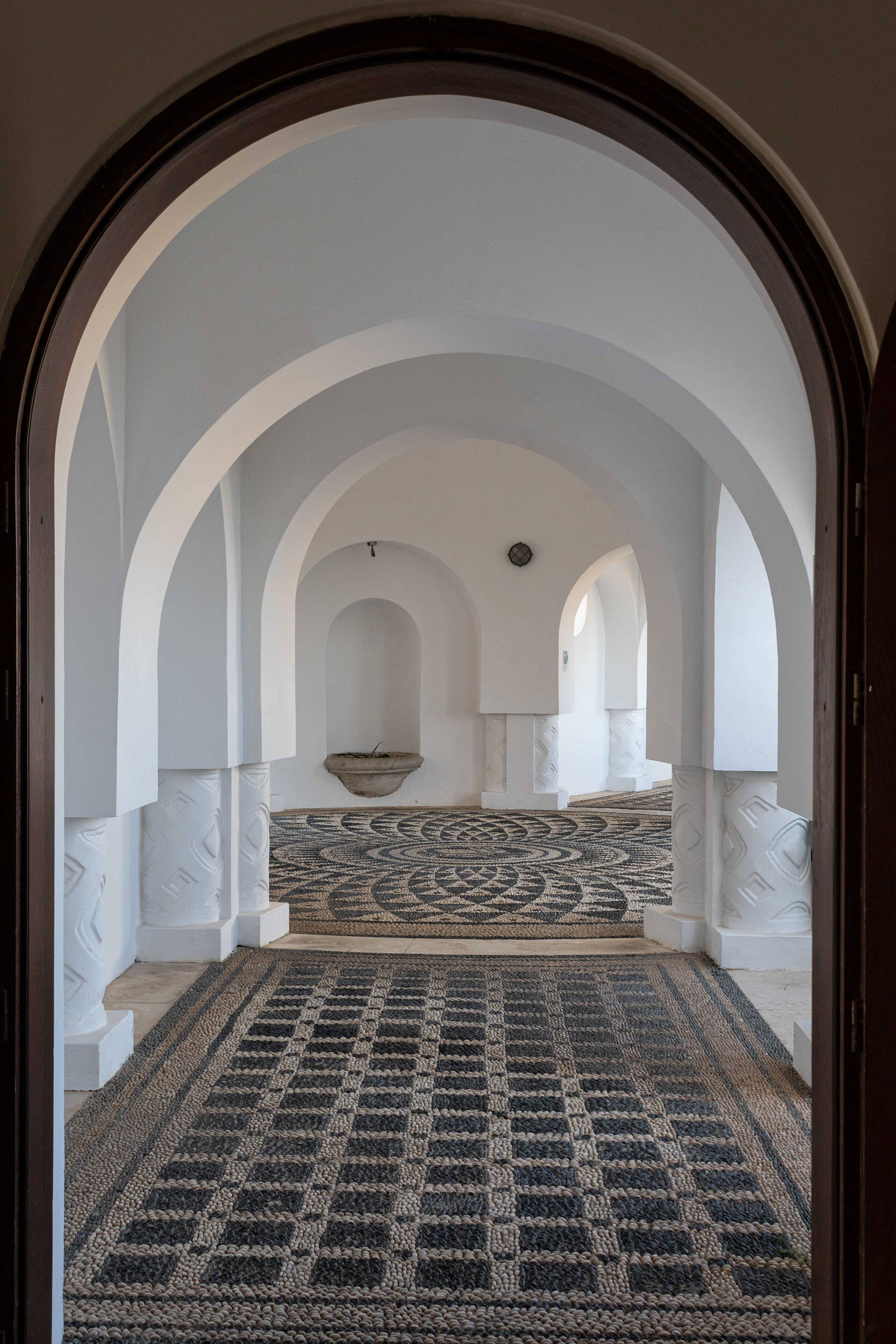
Our excursions also took us to the ancient ruins of Kamiros, and a 'wine factory', where we hoped to find some nice wine, but realised that this is not an item that brings much fame to the island. We did buy some nice dried herbs though, and there was a cool old rusty car outside to admire.
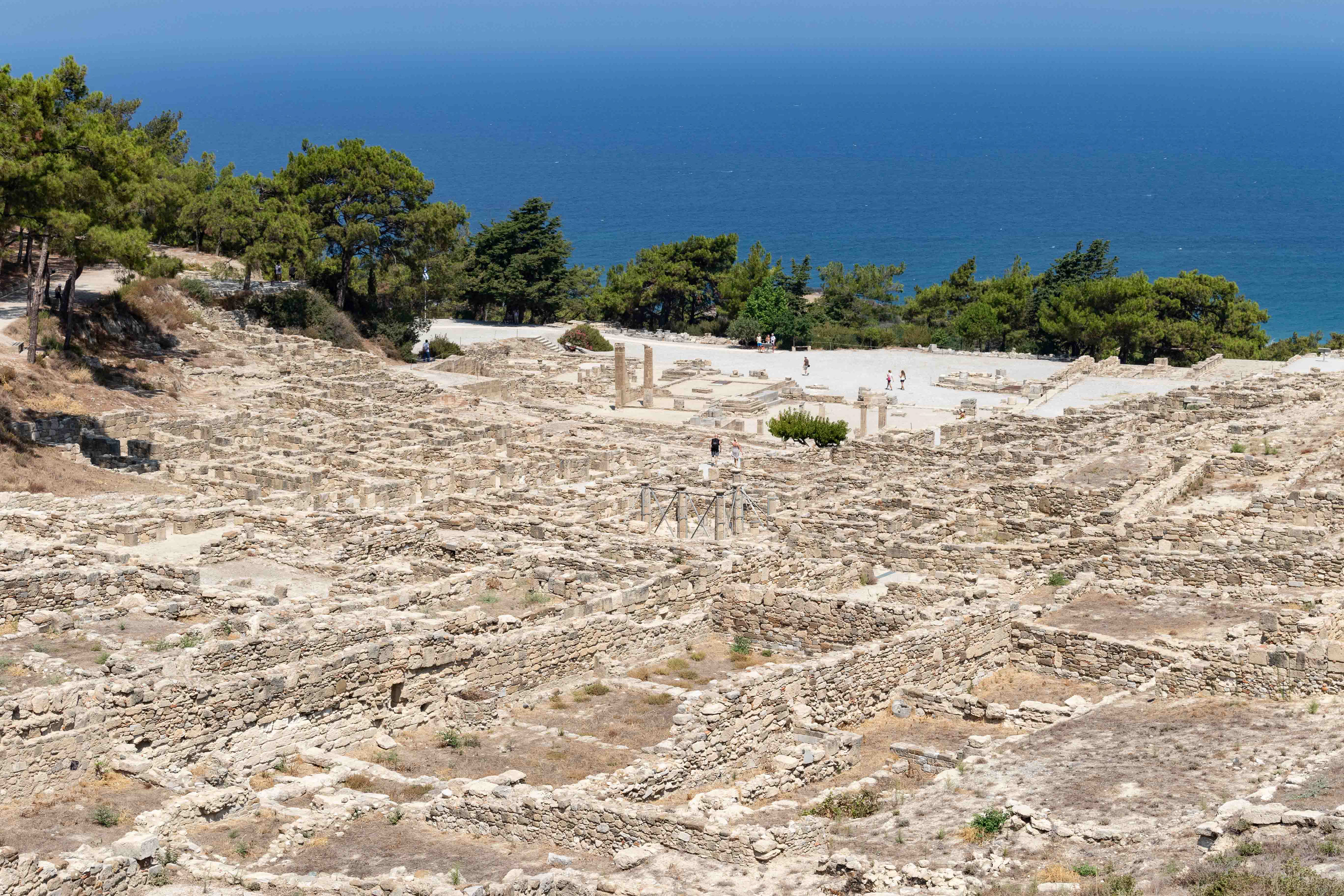
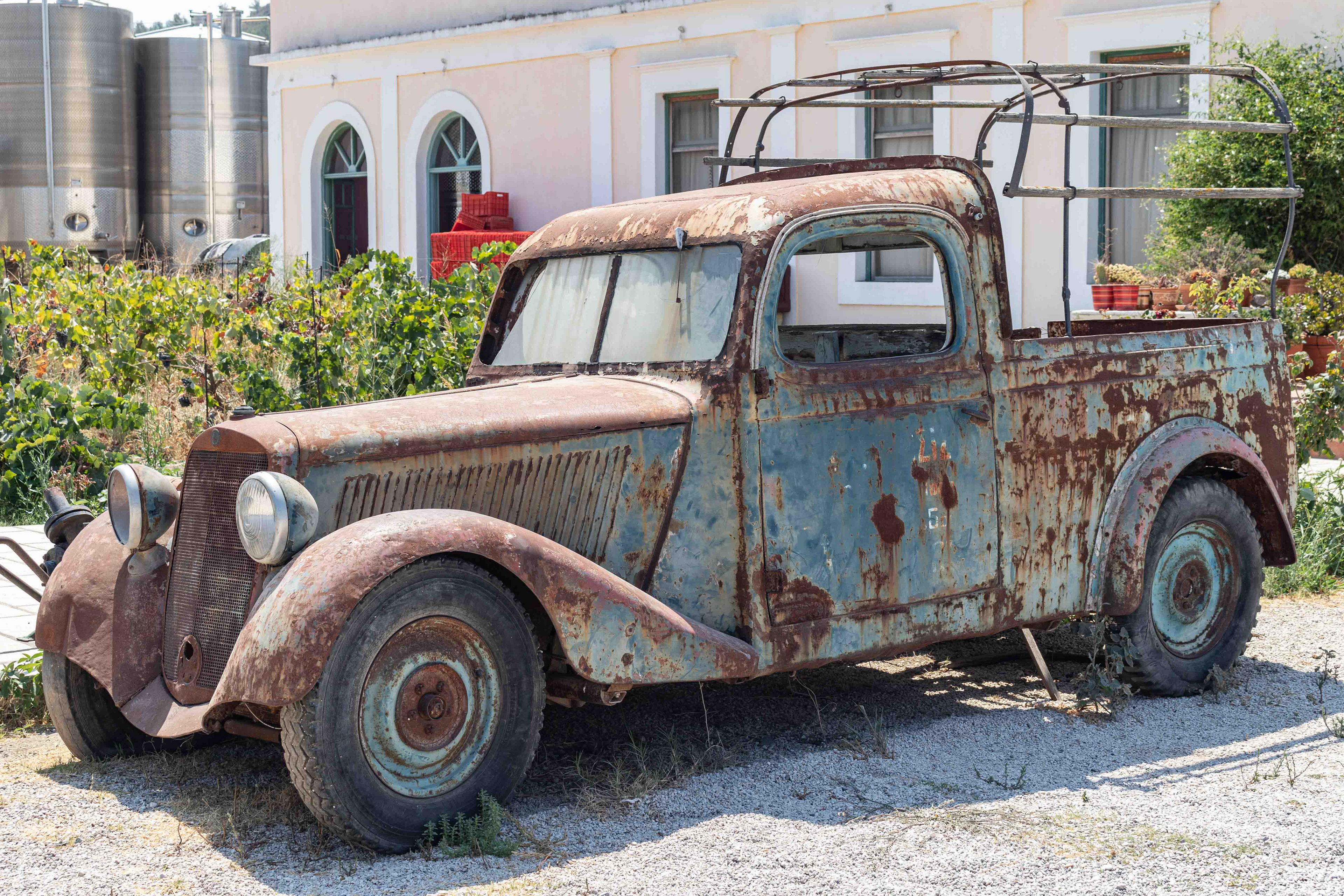
Rodos is a well-known windsurfing spot in Greece, so Sven wasn't going to pass up an opportunity to try it out. It's not much of a wave surfing spot, but they joy of windsurfing in warm waters without having to wear a wetsuit made it worthwhile.
The final stop of our trip was Athens. We arrived, took the gleaming metro to town, and then proceeded to find the hotel I'd booked in the suburb of Exarchia. I had absolutely no idea about the area I'd booked in; the place looked affordable and the reviews were good. However, what I did not anticipate was a steep walk up a hill in a neighbourhood that looked miserable, desolate, and very seedy. I was so disappointed, I thought this would ruin our stay. But I was wrong. It ended up being the best place to be in Athens. First though, some obligatory photos of the Acropolis.
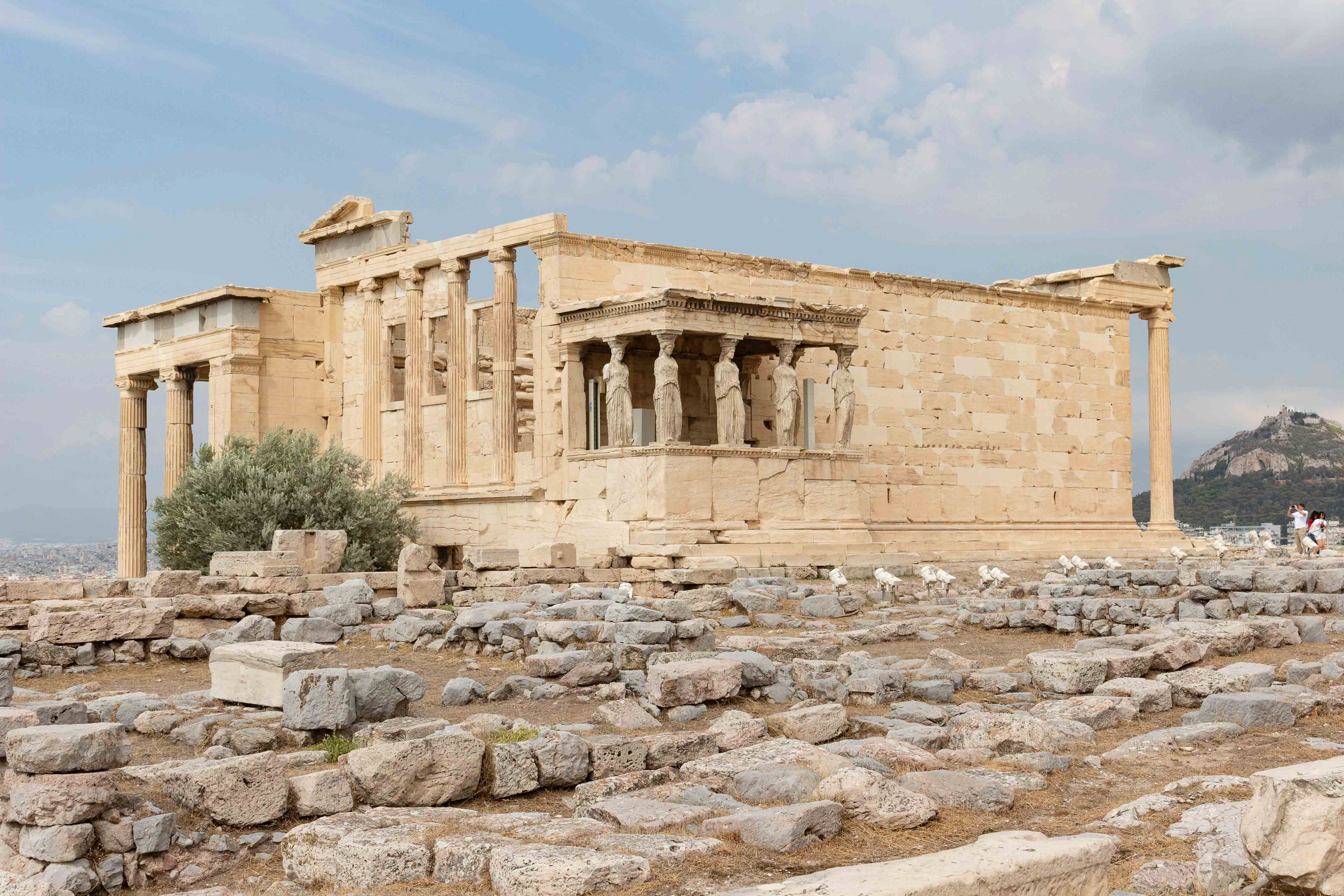
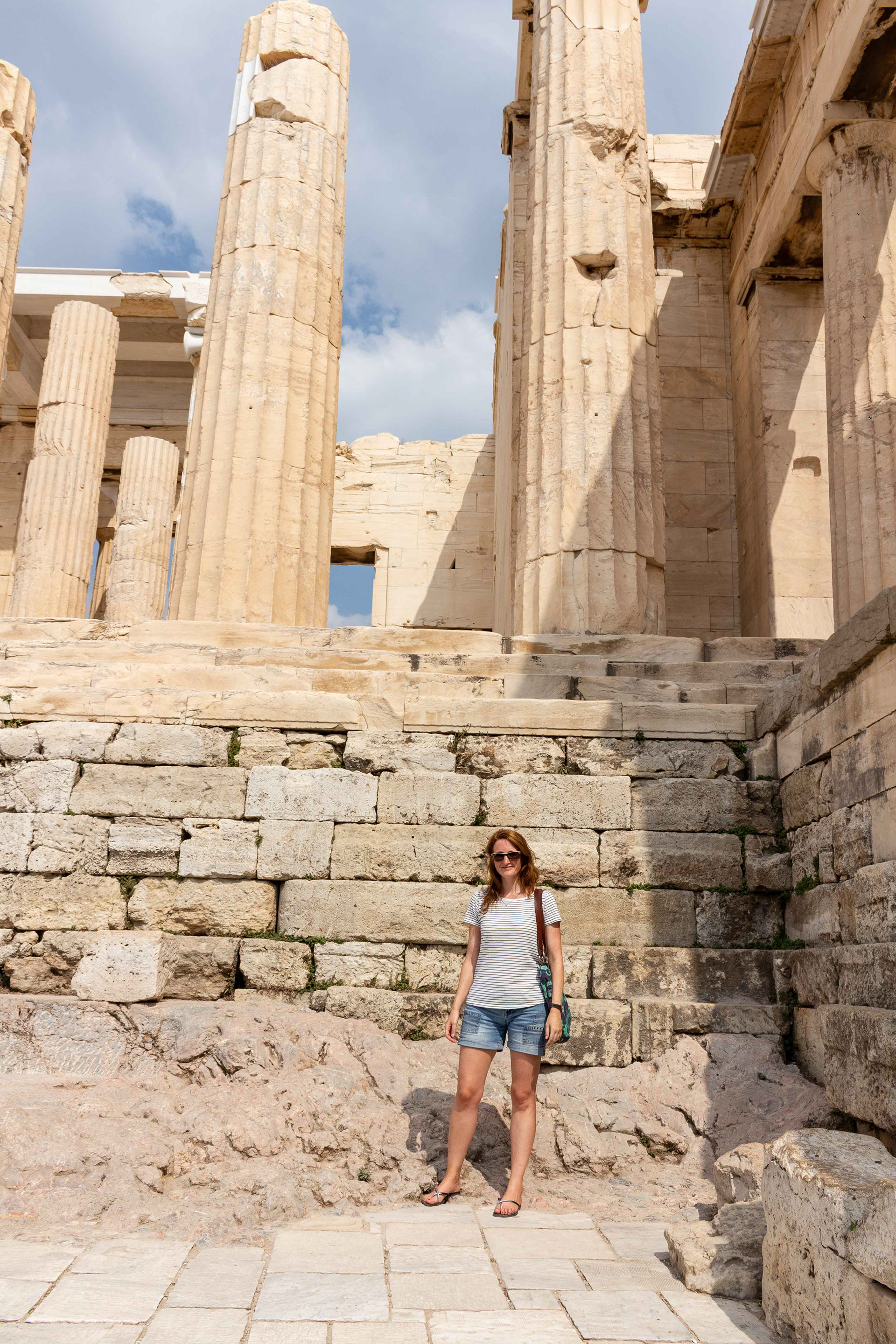
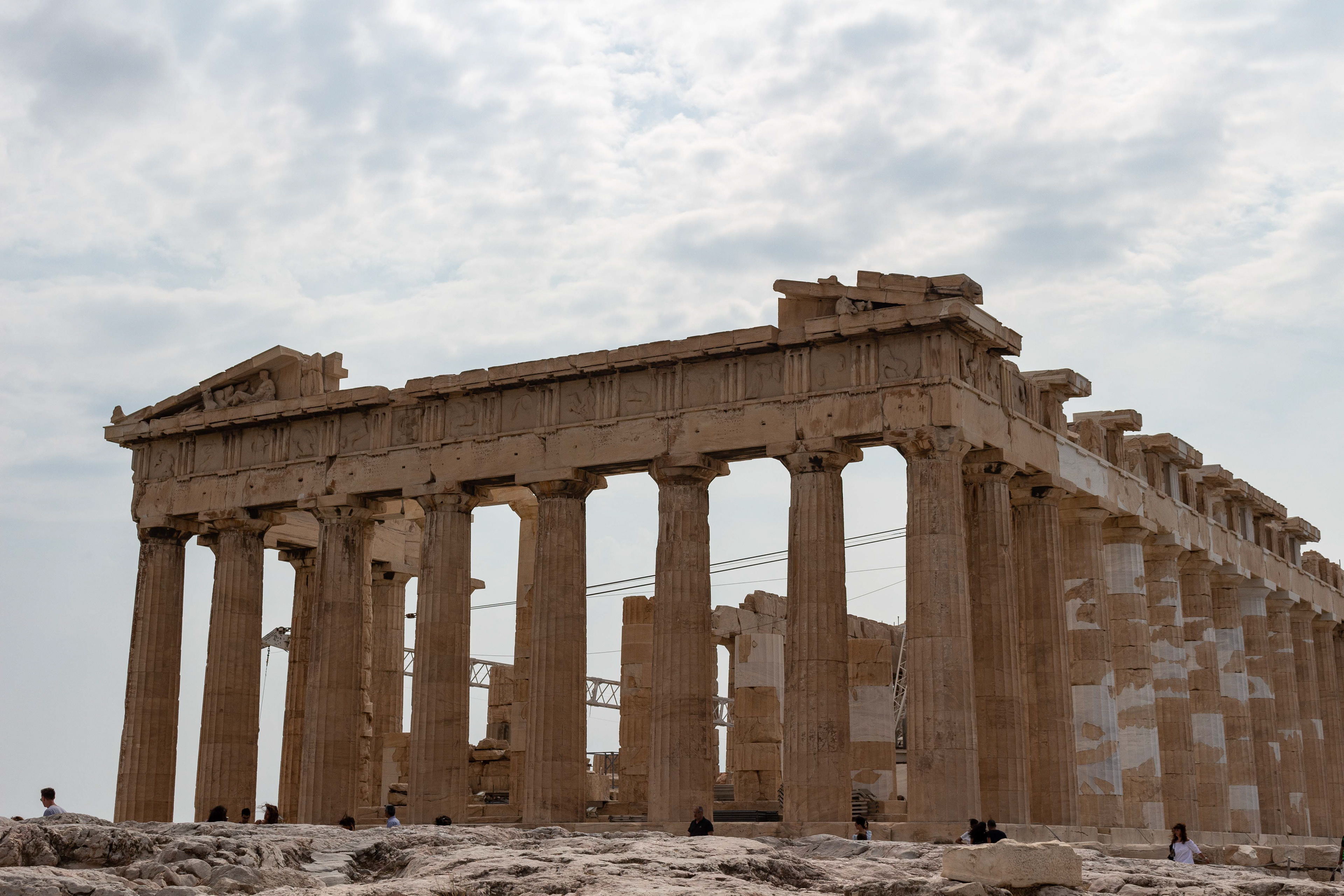
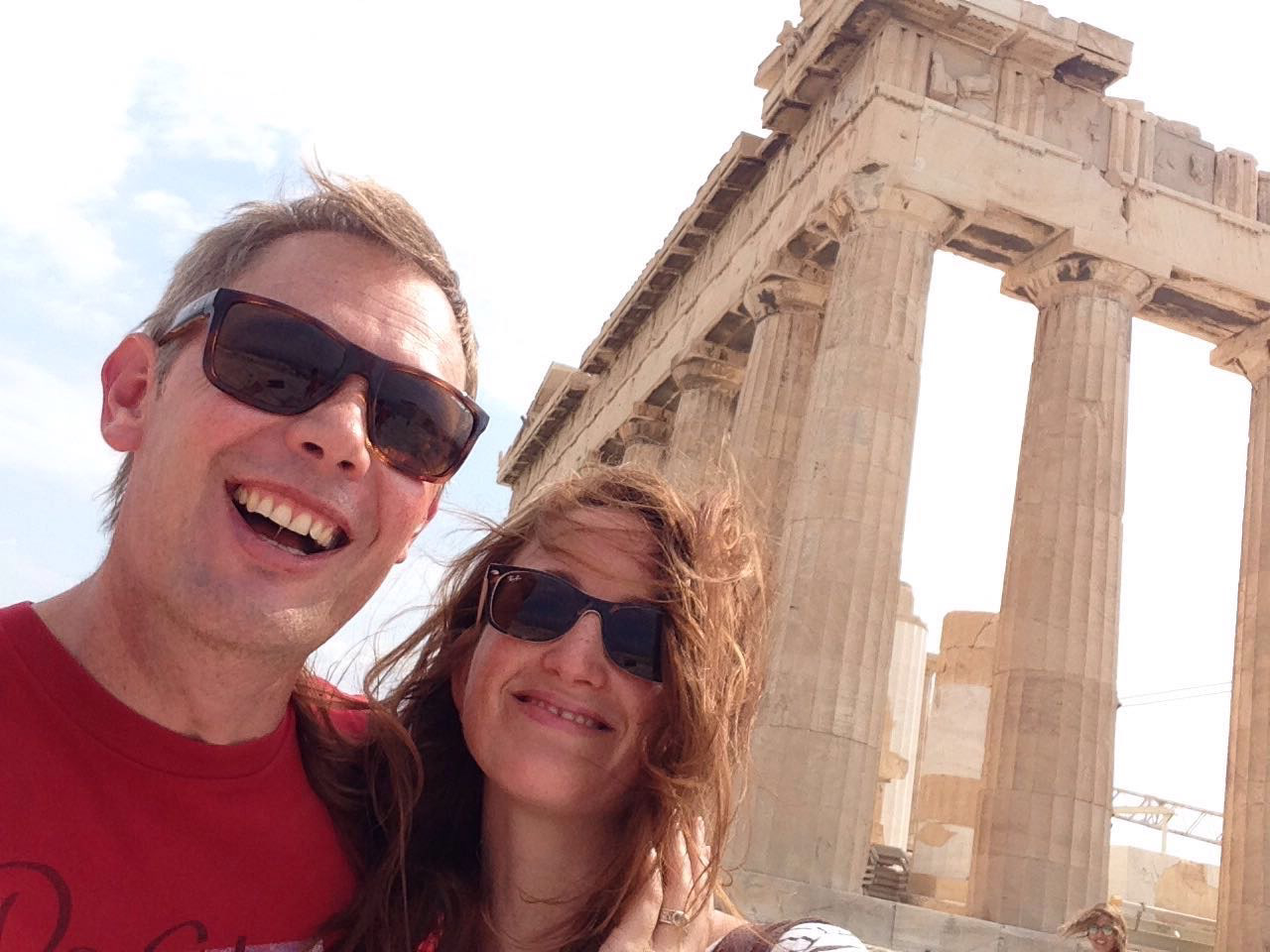
At night, we could see the illuminated Parthenon from our hotel.
The seemingly dodgy area I'd booked our hotel in turned out to be downright fantastic. At night, the neighbourhood buzzed to life when restaurants and bars opened, and we had some of the most delicious food we've ever eaten on our travels. And during the day, closer inspection of the copious graffiti revealed stunning artwork. Sven had read that many talented graffiti artists have used this area as a huge open-air canvas, and the result is quite stunning.
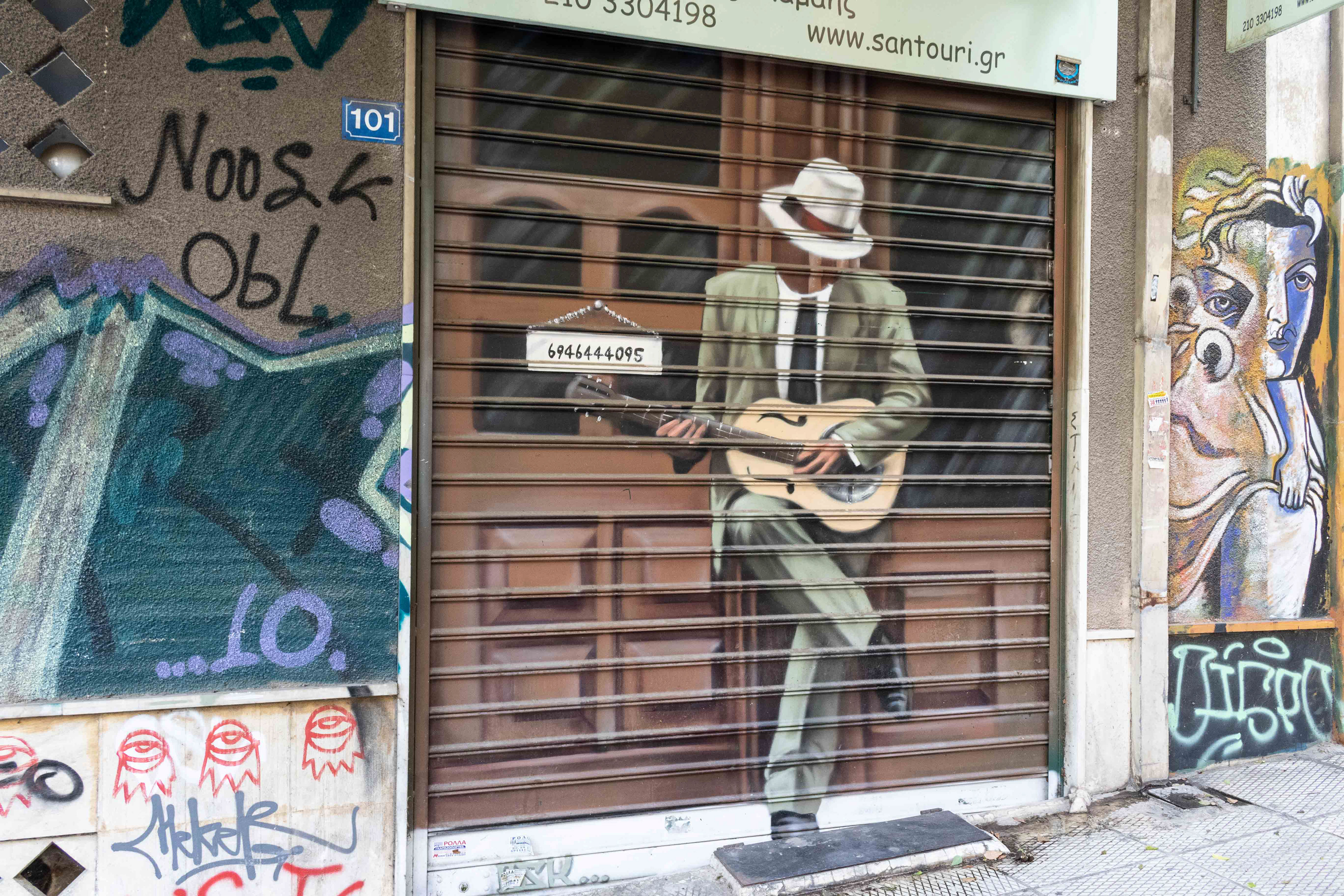
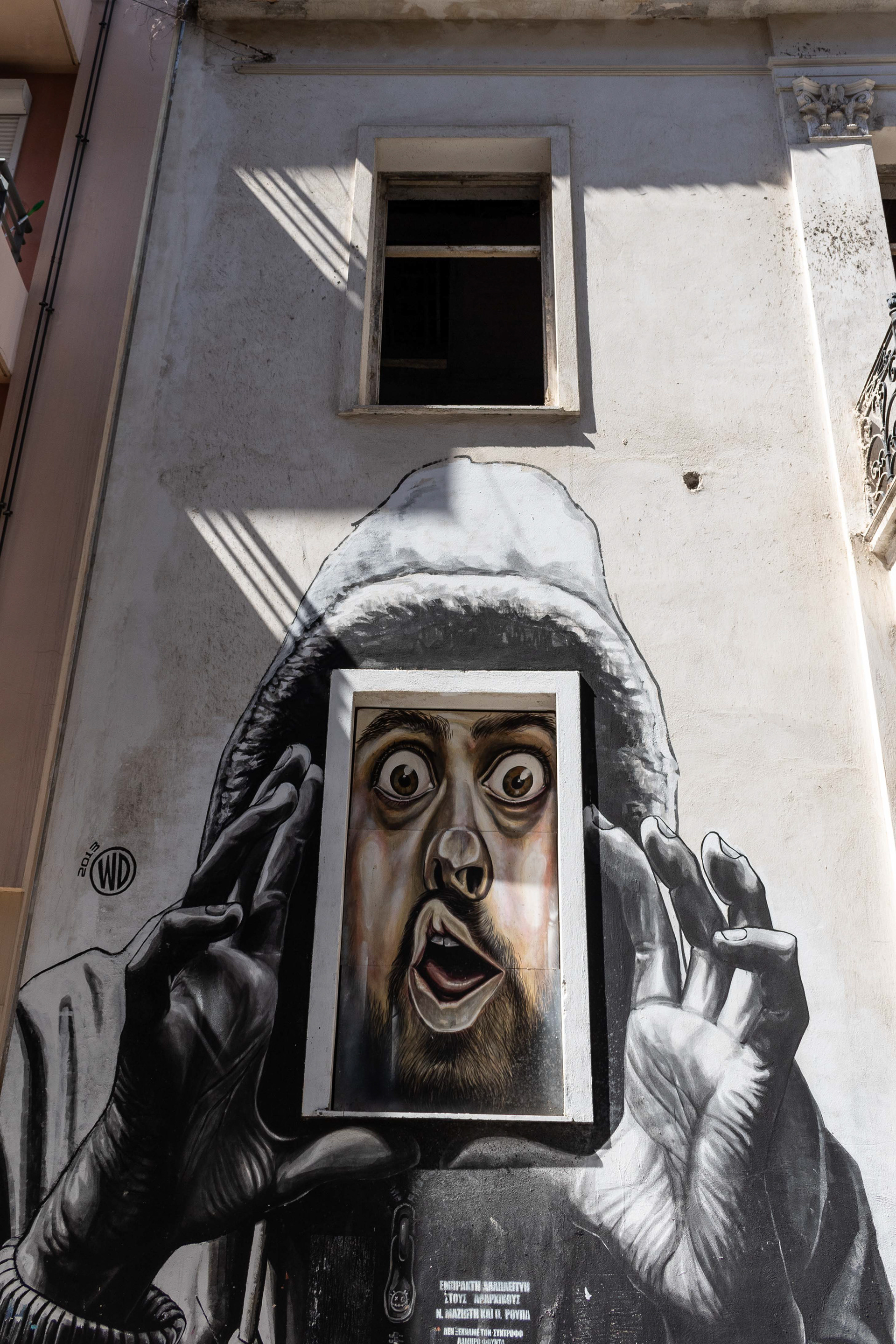
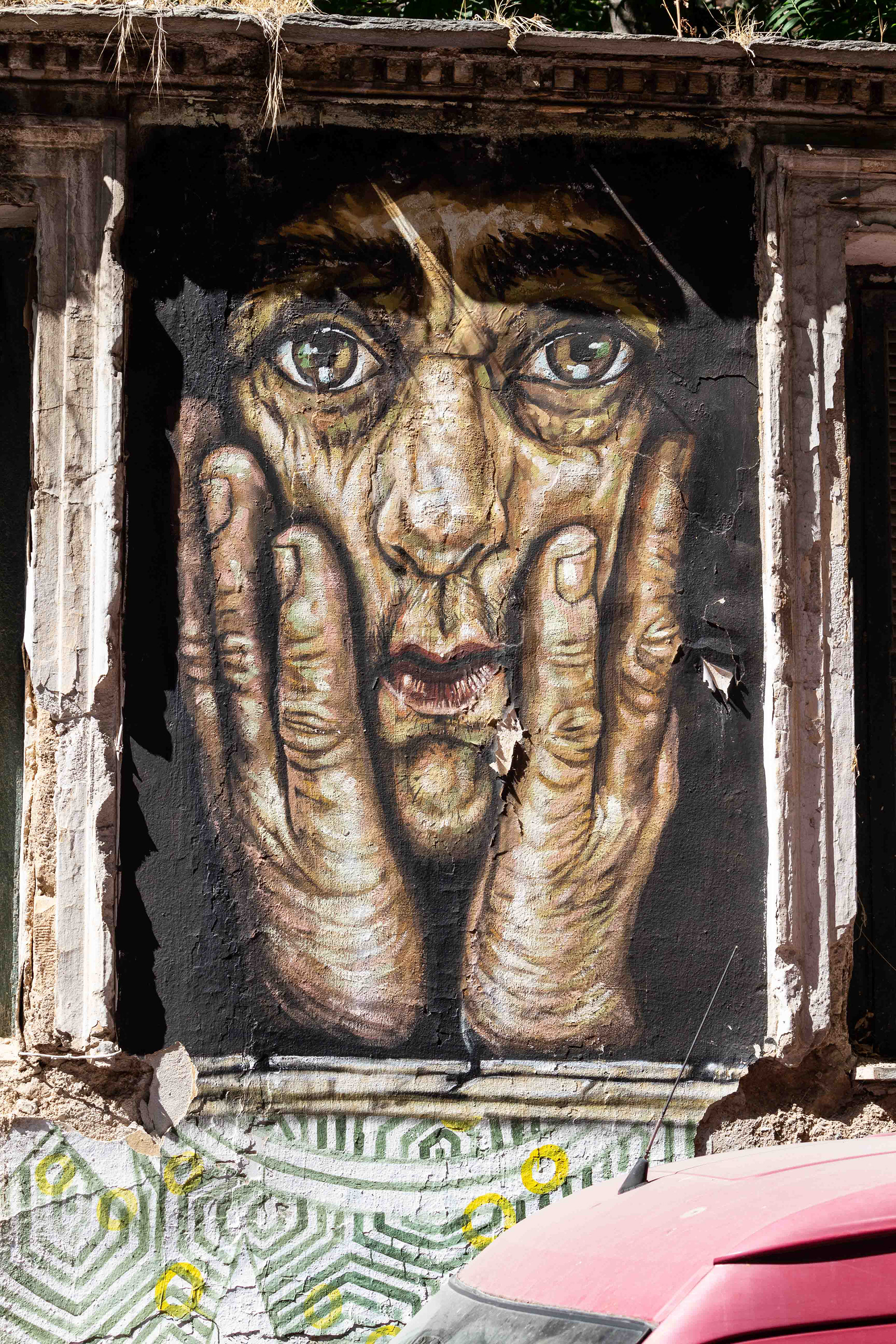
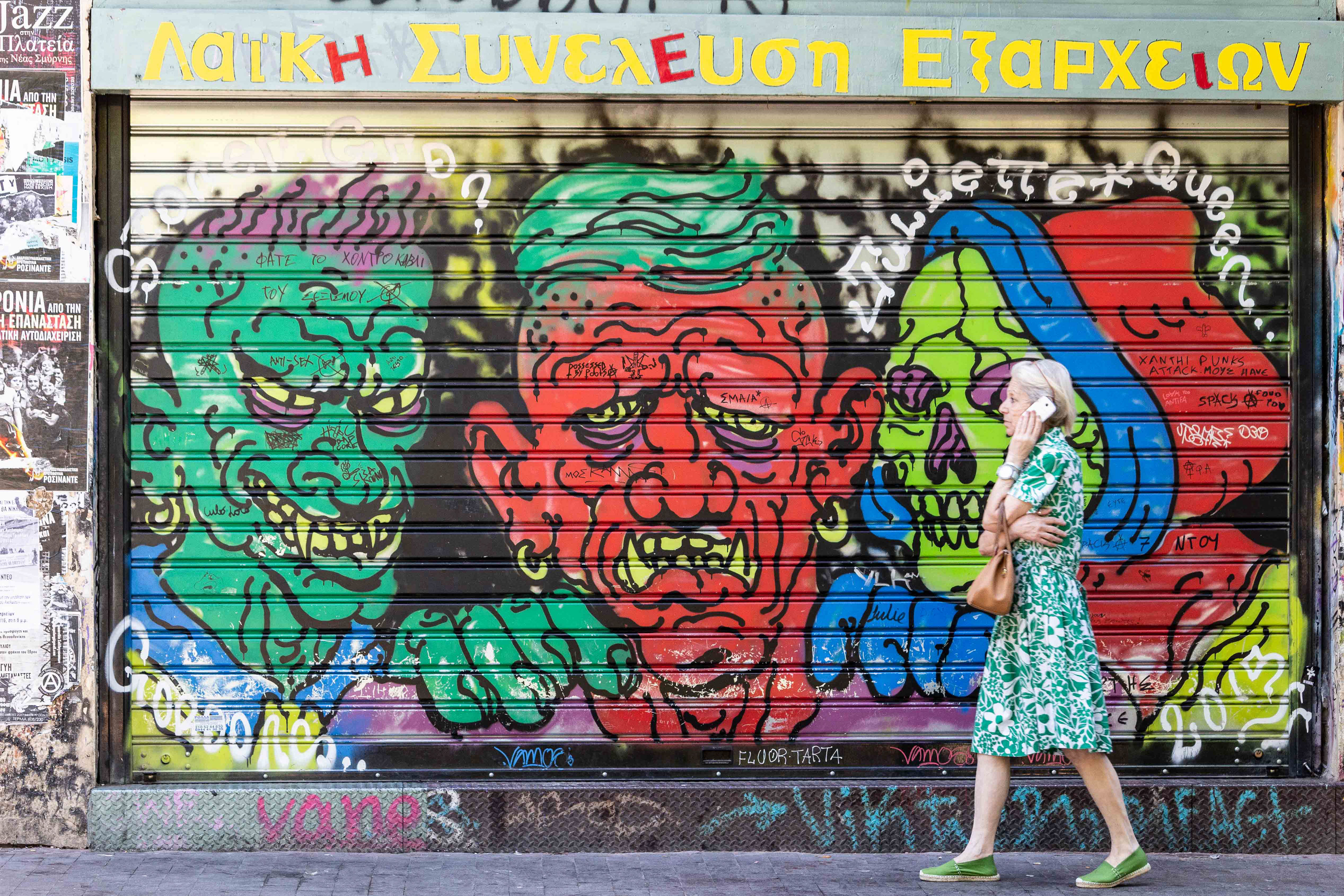
At the end of our trip, as always, we learned a few things.
1. Don't bother trying to find 'nice' wine. It's either too expensive or too hard to find. We attempted to find some red at a small grocery shop in Athens, but the owner only had a dubious-looking bottle for 16€. He did, however, have a barrel of his own homemade wine at the back of the shop, which he offered to us for 3€ a bottle. He was absolutely delighted when we agreed, and proudly brought us a 2l plastic bottle of his finest for us. It wasn't terrible, and it wasn't particularly good, but it was light and juicy and we had an absolute hoot sitting on the deck of our hotel that night drinking it.
2. The evidence of economic downturn is everywhere. Crumbling, abandoned buildings, and parts of the country that feel like a tired, old man slumped over in defeat. It's sad.
3. In an attempt to make money in difficult times, the government hiked the prices of tourist attractions by an astonishing amount. The Acropolis, for example, was 20€ per person when we visited. A couple of months earlier, it was closer to 13€, which had included entrance to the Agora (that is now a separate ticket). This didn't make it very easy for us to visit a multitude of attractions, as it was too expensive.
4. It's sometimes tricky to find genuinely good restaurants. Unfortunately, many still rely on the tired, touristy formula of mediocre, overpriced souvlaki and fake vine leaf decorations, accompanied by plinky-plonky Greek music that I suspect most Greeks themselves don't enjoy very much. However, ask a few locals about the best spots to eat and you're in for a real treat.
5. Greek islands have had varying amounts of success with embracing and controlling their tourist industries. For example, some islands are careful to limit the number of large hotel chains that can establish themselves, thereby ensuring that smaller businesses can still operate. Others, like Rodos, haven't been very good at this. The result is that many of the island's tourists book all-inclusive packages at large beachfront hotels, and never leave the hotel for the duration of their trip. Local tavernas try to make ends meet by charging insane prices for simple meals, incorrectly assuming that tourists will be willing to pay through their noses for the 'genuine' Greek experience.
6. The sea is amazing.
7. Greeks are friendly. We were really made to feel at home by everyone we met.
8. Although it sounds odd, a frappé is a refreshing and popular drink. It's the perfect alternative to hot coffee on a boiling hot day. It's made by blitzing instant coffee, ice water, and sugar, and topping up with milk as desired.
9. The price of bottled water is regulated by government. Vendors cannot rip you off for a bottle of water, and that's good to know.
10. Greek beers are refreshing, and they do hit the spot on a hot day.